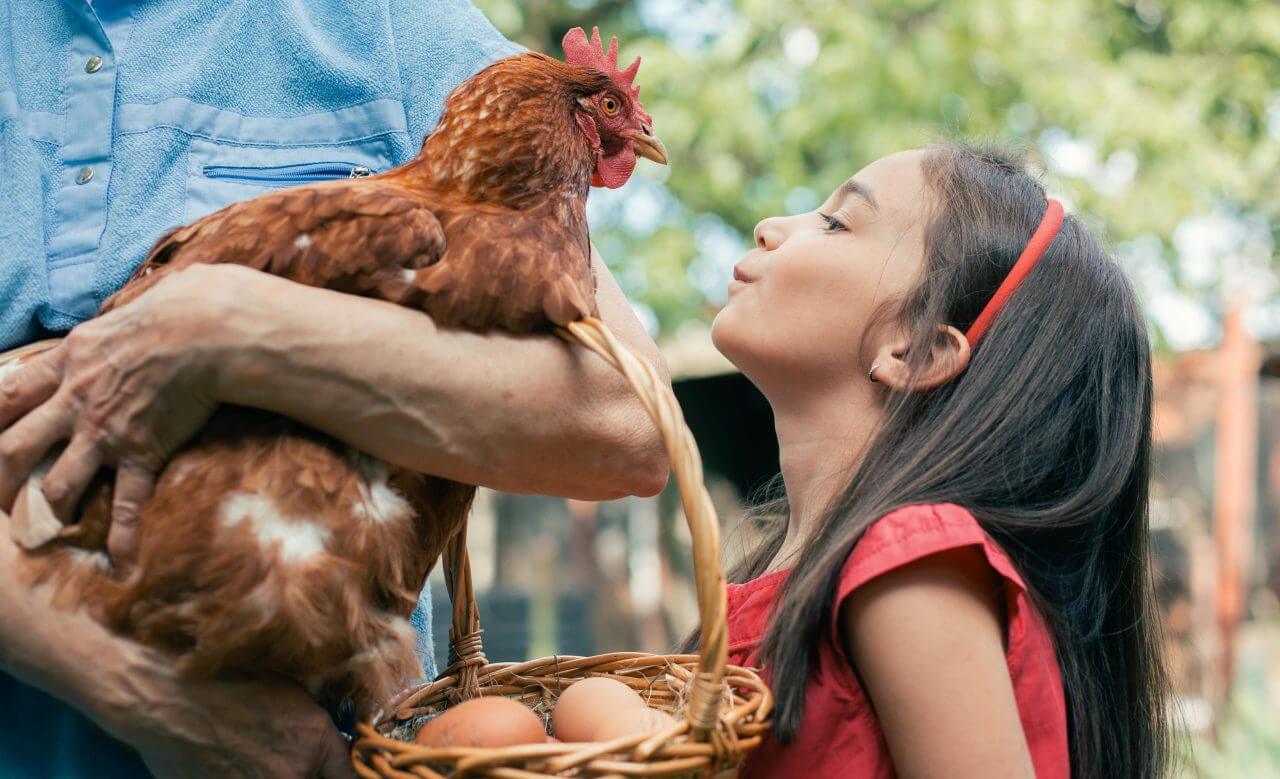6 Things to Know About Backyard Chickens

You don’t have to be a farmer anymore to raise chickens. Keeping these birds in urban and suburban backyards has become popular in recent years, thanks to an increasing focus on hyperlocal agriculture and the fact that it can be just plain fun, especially for families. To paraphrase one website that encourages keeping a backyard flock: Can your pet help make breakfast?
Guidelines to Follow For Keeping Chickens
Of course, there is a downside to having poultry join your family: the risk of disease. Bellow are things you need to consider if you’re keeping chickens on your property.
- Wash your hands thoroughly anytime you touch a chicken or anything the chicken might have touched (the coop, dirt, water bowls, etc.). This year, the Centers for Disease Control and Prevention reported a multistate outbreak of salmonella in 36 states linked to handling live poultry in backyard flocks. Salmonella makes people sick with diarrhea, fever, and abdominal cramps; it can even cause death. Live poultry can have salmonella germs on their bodies and in their droppings even when they appear healthy.
- Supervise small children who are around chickens. Of the 124 cases of salmonella in the latest outbreak linked to backyard birds, more than 30 percent of those sickened were younger than age 5. Toddlers and small children appear to be at greatest risk because their immune systems are still developing and they’re more likely to put fingers and other items in their mouths. Make sure they wash their hands and any other body parts exposed to birds immediately — even those sweet baby chicks can carry salmonella and other diseases.
- Keep your home sacred. Don’t let chickens in the house, and leave any shoes you wear in the chicken area outside. Don’t eat or drink near where the birds live or roam and don’t kiss or snuggle the chickens — and keep your kids from getting affectionate with them, too. If you keep other pets in the house, such as a dog, make sure they stay out of the chicken coop.
- Collect eggs with care. Don’t let eggs sit in the nest for long, as they can become dirty or break. If an egg is cracked, throw it away. Use a cloth to clean dirty eggs, rather than washing them, which can pull bacteria into the egg. After you collect the eggs, refrigerate them right away, and make sure you cook them thoroughly before eating.
- Take scratches seriously. If you’re scratched by a bird, wash the wound thoroughly with soap and water to remove germs. See a doctor to make sure you don’t need follow-up care, especially if the chicken seems sick, the wound becomes red, painful or swollen, or it’s been more than five years since you had a tetanus shot.
- Think about chicken health, too. Keeping backyard chickens can be rewarding, but like caring for any living thing, it takes effort and doing your homework. First, research your local laws regarding backyard chickens; many municipalities have limits on numbers or types of birds or where coops can be built.
Chickens need a secure, easy-to-clean shelter to protect them from weather and predators and need a veterinarian with experience caring for poultry. The CDC has starter information for people interested in having a flock, as does the Indiana State Poultry Association. Owners should learn the signs of bird illness, such as avian influenza, and report sick birds immediately to their veterinarian and the U.S. Department of Agriculture.
It’s also important to note that hens have a biological clock just like humans do; they lay eggs for the first two to three years of life and then egg production slows until it stops. However, hens tend to live about a decade. Have a plan for what you’ll do when your birds aren’t laying eggs consistently anymore; some people keep them as pets and others use them for food.
Find practical tips for healthy living on the Baptist Health for You blog.



.jpg?rev=f53d63041ef344ac889ad8acf9a2e0a5)